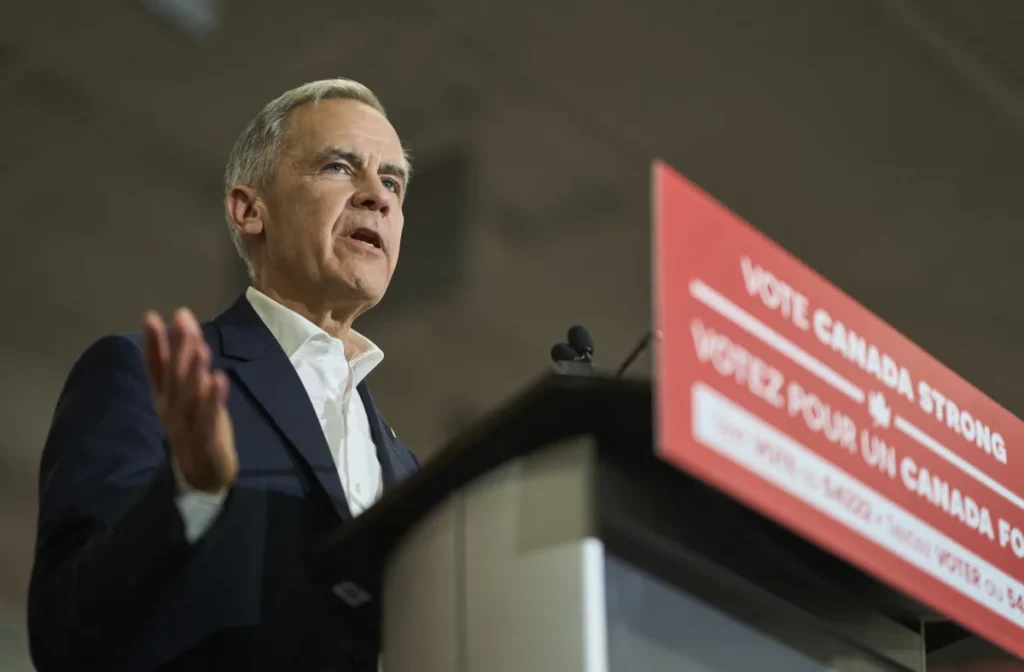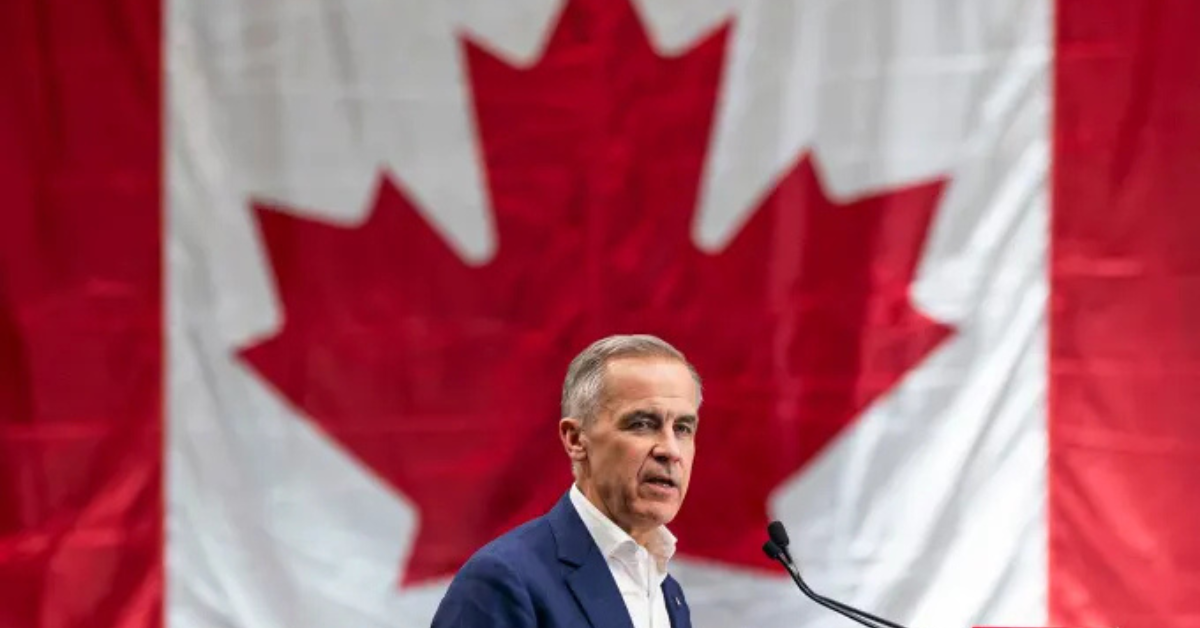
The Election in Canada: Results and Updates
Live Updates: On an anti-Trump platform, Mark Carney wins a second term as prime minister of Canada
The national network, CBC/Radio Canada, predicted that the Liberal Party would win the unusual election, which was dominated by President Trump’s threats to Canada’s economy and sovereignty.
This is the most recent.
Mark Carney’s Victory and the Shift in Canadian Politics
According to the national broadcaster CBC/Radio Canada, the Liberal Party of Canada won Monday’s national elections where voters elected Mark Carney to a full term as prime minister, selecting an experienced economist and politician to lead their nation through difficult times.
Later on Monday or early on Tuesday, the whole findings ought to be accessible.
However, the voters’ choice marked a dramatic change for the Liberal Party, which only months before appeared destined to lose to the Conservative Party, which was led by Pierre Poilievre, a career politician.
Since previous Prime Minister Justin Trudeau resigned in March, Mr. Carney has served as prime minister.
Candidates and many voters have called the election the most significant vote of their lives, making it extraordinary in many respects.
President Trump has dominated it with his unrelenting attention to Canada, the United States’ closest trading partner and ally.
In addition to constantly threatening to invade Canada as the 51st state, Mr. Trump has placed tariffs on Canadian exports, driving the country into a recession.
He reiterated that wish on social media, claiming that it would have both military and economic advantages, even as Canadians were going to the polls on Monday morning.

Canada’s Response to U.S. Pressure and Future Challenges
The American president’s position eventually helped Mr. Carney, 60, who ran as the anti-Trump candidate and focused his campaign on dealing with the United States.
For years, Mr. Poilievre, 45, and the Conservatives had dominated polls, constructing a platform against Mr. Trudeau and the Liberals on the claim that they had caused Canada to enter a protracted economic slump.
However, with Mr. Trudeau’s resignation and Mr. Trump’s hostility against Canada, they saw their double-digit lead quickly evaporate.
Both the domestic economy and Canada’s relationship with its southern neighbor were major concerns for Canadians as they went to the polls.
Prior to the election, opinion polls indicated that concerns over affordability, particularly housing, were at the top of the list.
However, Canada’s decision on Monday also acted as a sort of referendum against Mr. Trump and his treatment of the United States’ trading partners and allies.
Mark Carney’s Background and the Road Ahead
Following Germany, this is the second major international election since Mr. Trump took office, and everyone is watching Canada’s response to the rift in its relationship with the United States.
The election also demonstrated how conservatives abroad may find Mr. Trump’s style of politics poisonous if they believe it to be too similar to his ideology and rhetoric.
Pre-election polls indicated that Mr. Poilievre had lost centrist supporters when he blasted “radical woke ideology,” promised to defund Canada’s national broadcaster, and claimed he would reduce foreign aid.
Since running to succeed Mr. Trudeau in January, Mr. Carney has risen quickly through Canada’s political establishment, and Monday’s victory was an incredible moment in his career.
According to polls and some individual voters, Mr. Carney, a political newbie but seasoned policymaker, won over people who had been considering backing the Conservatives with his calm, serious demeanor and refusal to back Mr. Trump’s aggressive overtures.
And after ten years of Mr. Trudeau’s radical agenda, his pragmatic and centrist policies appeared to better suit Canada’s mood.
On Monday, it was clear that the Liberals had benefited from Mr. Carney’s character and experience.
An economist with degrees from Harvard and Oxford, he was governor of the Bank of Canada during the global financial crisis of 2008 and the Bank of England during Brexit.
He then became a prominent voice on climate-conscious investing and served on company boards.
Critics such as Mr. Poilievre attempted to portray Mr. Carney as an irrelevant elite who had lived outside of Canada for the majority of his adult life and had little knowledge of the nation or its citizens.
They also criticized Mr. Carney for his work experience in China, which has influenced Canadian elections, and for some of his policy recommendations, which they claimed would put a strain on Canada’s public coffers and hinder the growth of the nation’s economy.
Even with Monday’s win, Mr. Carney and his new administration will face challenges.
He must, first and foremost, confront Mr. Trump’s erratic behavior toward Canada and engage in frank conversations on sensitive topics like trade and security.
Additionally, he must demonstrate to Canadians that he can actually use his expertise in economic policy to address Canada’s sluggish economic development and chronically high unemployment rate.

